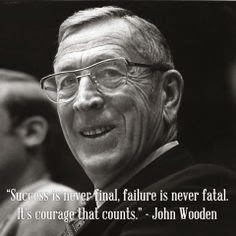
It is safe to say the town has been buzzing since it was announced that Dallas Cowboys quarterback Tony Romo has signed a contract extension worthy of a Super Bowl champion — even though he has never played in one.
"Romo may not exactly belong in the same neighborhood as Tom Brady," writes Mac Engel in the Fort Worth Star–Telegram, "but now he can afford at least a plot around the corner."
In fact, as Jarrett Bell of USA Today observed, the nearly 33–year–old signal caller has won only one playoff game in his career. It also happens to be the Cowboys' only playoff victory in the last 15 years.
(The Cowboys haven't been to a Super Bowl in nearly 20 years.)
Furthermore, it is safe to say that some folks are questioning Cowboys owner Jerry Jones' sanity.
I'm one of 'em. Have been for awhile.
It's a big club.
There were those who felt that way back when Jones bought the team and unceremoniously fired iconic coach Tom Landry. Still more came on board when Jones and Landry's successor, Jimmy Johnson, parted ways after Johnson won back–to–back Super Bowls.
Perhaps they were the visionaries.
I'll grant you, I had my doubts about Jones early on when he talked about being involved in everything at Valley Ranch ("socks 'n' jocks"). That was a little too hands–on for me — but, boy, did it tell us a few things about Jones' mindset.
At first, I was willing to overlook it as the understandable exuberance of a middle–aged man indulging in a boyhood fantasy — running a pro football team.
But I figured — perhaps naively — that he would leave all that behind after winning a couple of Super Bowls — and would leave the football team to the coach and his staff.
He hasn't.
Jones may fancy himself a shrewd judge of football players, but, in my book, he doesn't have much of a record — especially when it comes to picking quarterbacks. His tenure has been like watching a toddler grabbing for everything that shines brightly and catches his eye.
But, as Shakespeare wrote, "All that glitters is not gold."
The three Super Bowls the Cowboys won in the 1990s were won by a quarterback to whom the Cowboys were already committed before Jones acquired the team (Troy Aikman).
A glance at the names that have filled the QB slot since Aikman retired reveals a lineup of wannabes and has–beens. Mostly flash, little substance.
That is such a shame because the Dallas franchise was once synonymous with quarterback excellence.
It isn't that I think that Romo is a bad quarterback. He isn't. But he is inconsistent.
And that makes him mediocre.
I don't blame him for taking the contract. I doubt that anyone else would have offered him nearly as much. His window is rapidly closing.
But I do blame Jones for making the offer.
Someone else should be making the football decisions at Valley Ranch.











